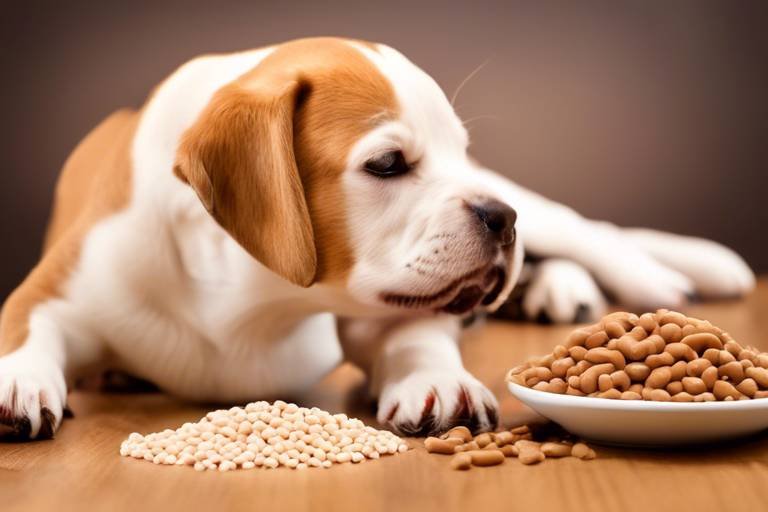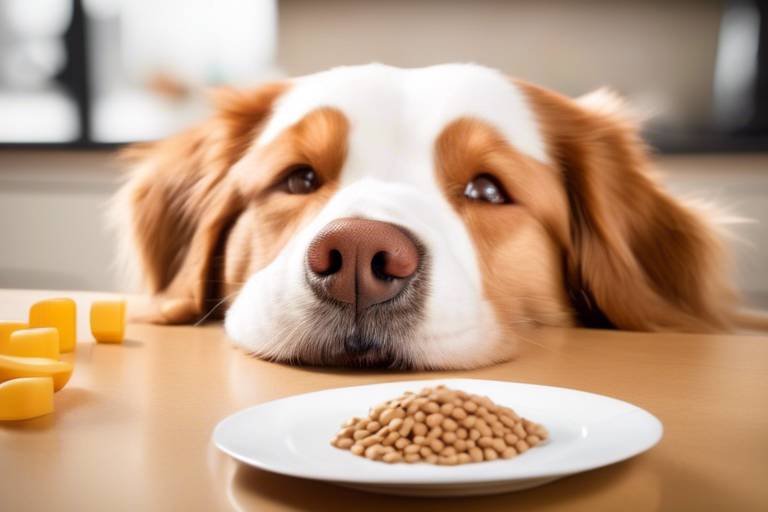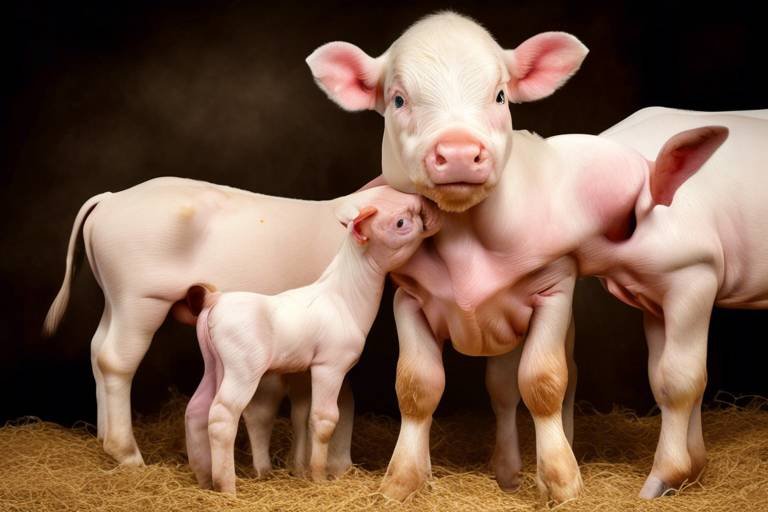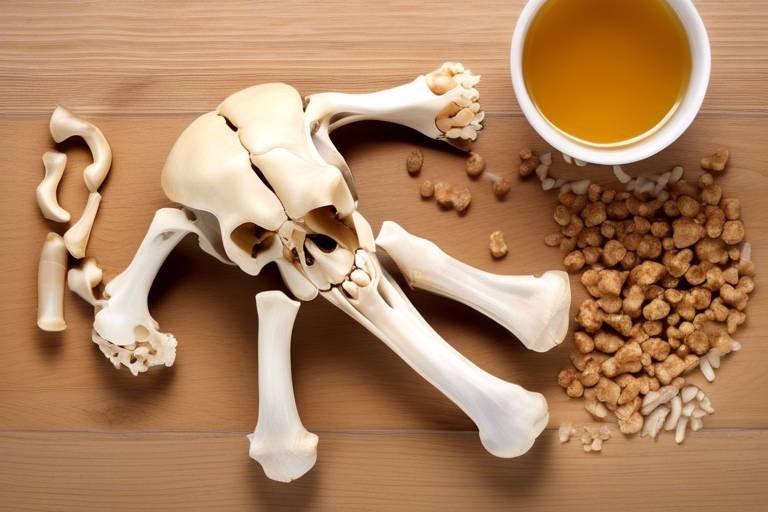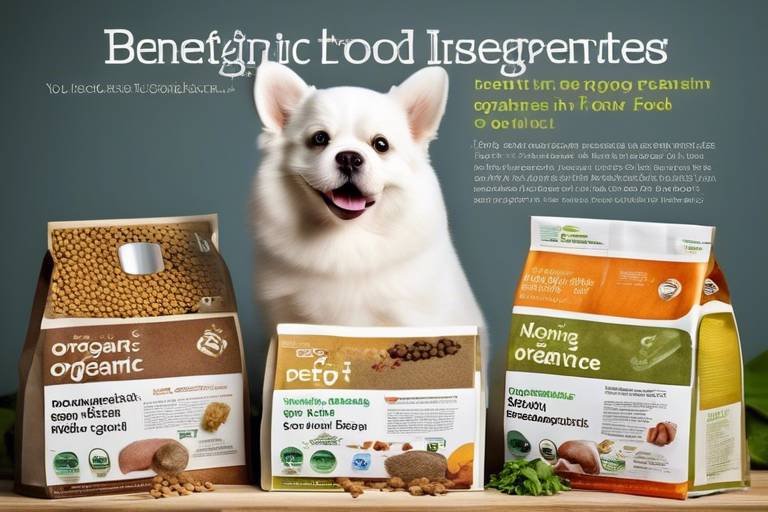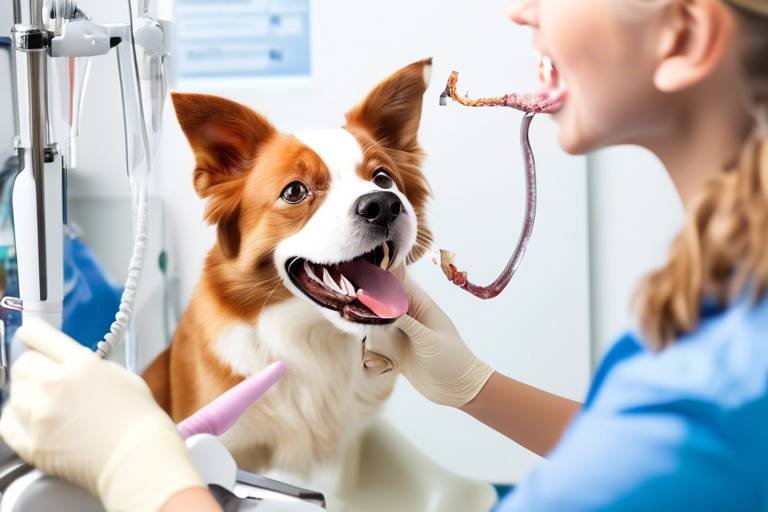The Role of Protein Quality in Pet Nutrition
When it comes to our furry friends, the quality of their protein is just as crucial as the quantity. Think of protein as the building blocks of life for pets—much like bricks in a house. If you use subpar bricks, your house may look good on the outside, but it won't stand the test of time. In the same way, low-quality protein can lead to a host of health issues in pets, affecting everything from their fur to their energy levels. So, why should pet owners care about protein quality? Well, it directly influences your pet's overall health, growth, and vitality.
The pet food market is flooded with options, and it can be overwhelming to choose the right one. Many pet owners often focus solely on the protein content listed on the label, but this can be misleading. Not all proteins are created equal. The digestibility and amino acid profile of the protein source play significant roles in how well your pet can utilize that protein. For instance, a high-quality protein source will have a complete amino acid profile, meaning it contains all the essential amino acids that your pet needs to thrive.
Moreover, the source of protein matters. Animal-based proteins, such as meat and fish, tend to offer a more complete amino acid profile compared to many plant-based proteins. However, that doesn't mean plant proteins can't contribute positively to a pet's diet; they can serve as excellent supplements when combined with animal proteins. It's all about striking the right balance.
In this article, we will explore the significance of protein quality in pet nutrition, examining how it impacts health, growth, and overall well-being. We will also provide insights into selecting the best protein sources for your pets, ensuring they receive the nutrients they need to lead happy and healthy lives.
Protein quality refers to the ability of a protein source to meet an animal's amino acid requirements. This section explains the factors that determine protein quality and its importance in pet nutrition.
Essential amino acids are critical for pet health. Here, we discuss which amino acids are necessary for pets and how they contribute to various bodily functions and overall health.
Not all protein sources are created equal. This section highlights various high-quality protein sources suitable for pets, including animal-based and plant-based options, and their nutritional benefits.
Animal-based proteins offer complete amino acid profiles. We will explore different types of animal proteins, such as meat, fish, and eggs, and their advantages for pet diets.
Plant-based proteins can supplement pet diets. This part examines the role of legumes, grains, and other plant sources, discussing their benefits and limitations in providing essential nutrients.
The digestibility of protein affects how well pets can utilize it. This section focuses on the factors influencing protein absorption and the importance of digestibility in pet food formulations.
High-quality protein is vital for maintaining a pet's health. Here, we investigate how protein quality influences growth, muscle development, and immune function in pets.
As pets age, their nutritional needs change. This section discusses the significance of protein quality in senior pets, focusing on how it can help maintain muscle mass and overall vitality.
Misconceptions about protein in pet diets are prevalent. We will debunk common myths surrounding protein quality and provide evidence-based insights to guide pet owners in making informed choices.
- What is protein quality in pet food? Protein quality refers to how well a protein source meets the amino acid needs of pets.
- Why is protein quality important for my pet? High-quality protein supports growth, muscle development, and overall health.
- Can I feed my pet plant-based proteins? Yes, but they should be balanced with animal proteins to ensure complete nutrition.
- How can I determine if a pet food has high-quality protein? Look for specific protein sources listed and check for a complete amino acid profile.
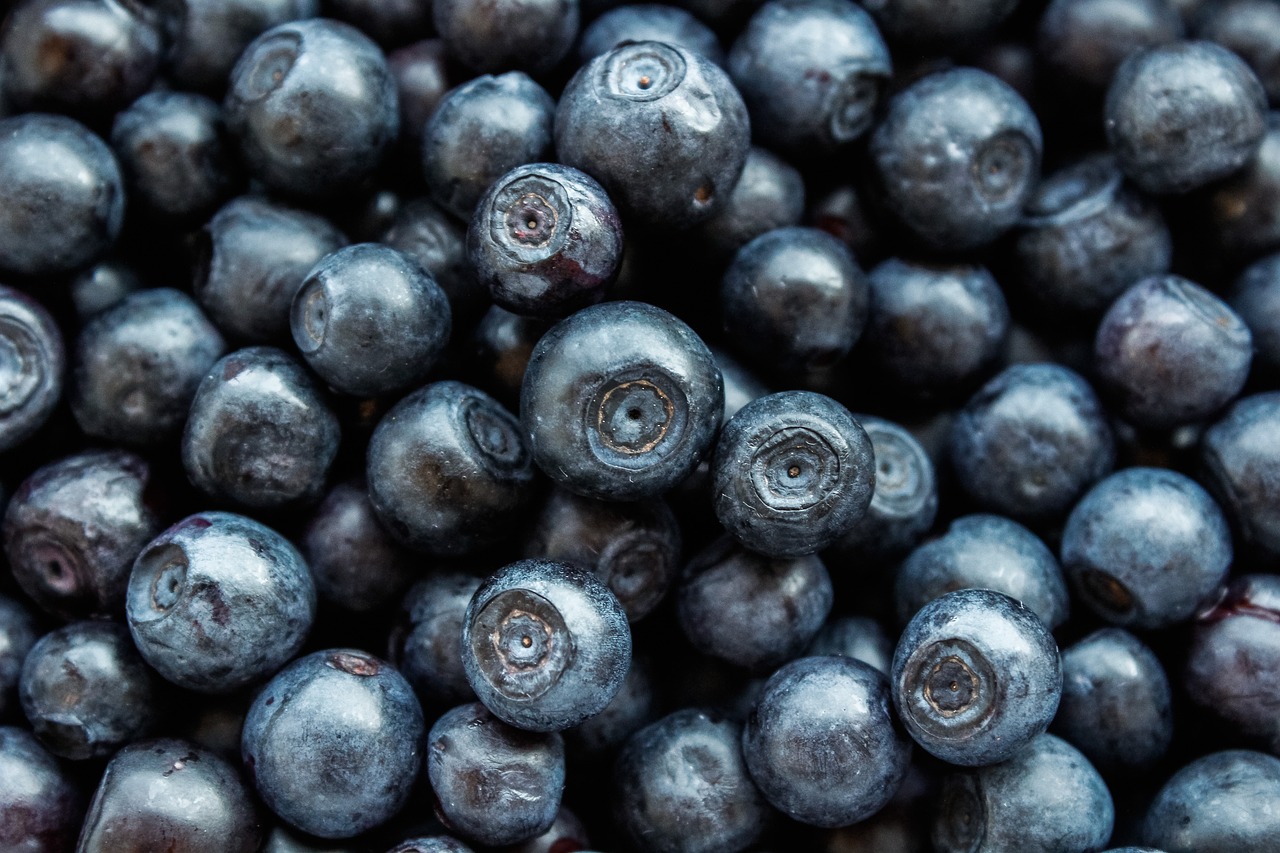
Understanding Protein Quality
When we talk about protein quality, we're diving into a fascinating world that goes beyond just the quantity of protein in your pet's food. It’s about how well that protein can meet your furry friend's amino acid needs. Think of protein as the building blocks of life, essential for everything from muscle growth to immune function. But not all proteins are created equal! The quality of protein depends on several factors, including its amino acid profile, digestibility, and the source from which it is derived.
One of the key elements to consider is the amino acid profile. Proteins are made up of 20 different amino acids, and while some can be produced by the body, others—known as essential amino acids—must come from the diet. The presence of these essential amino acids in the right proportions is what makes a protein source high quality. For pets, particularly dogs and cats, the right balance can significantly impact their overall health and well-being.
Moreover, the digestibility of protein plays a crucial role in its quality. Even if a protein source is rich in essential amino acids, it won't do much good if your pet's body can’t absorb it effectively. Factors influencing digestibility include the source of the protein, how it’s processed, and even the individual pet's digestive health. For instance, animal-based proteins tend to be more easily digestible compared to many plant-based sources. This means that your pet can utilize the nutrients more efficiently, leading to better health outcomes.
To put it simply, understanding protein quality is like knowing the difference between a gourmet meal and fast food. One provides all the necessary nutrients and energy your pet needs, while the other might just fill them up without offering much in terms of health benefits. So, when choosing a pet food, it's essential to look beyond just the protein content on the label. Instead, consider the quality of the protein sources used. A high-quality protein source will not only support your pet's growth and development but also contribute to their long-term health.
In summary, protein quality is a multi-faceted concept that every pet owner should grasp. By focusing on the amino acid profile, digestibility, and the source of protein, you can make informed decisions that will help your pet thrive. After all, wouldn’t you want the best for your furry companion?

Essential Amino Acids for Pets
When it comes to keeping our furry friends healthy and happy, essential amino acids play a crucial role. These are the building blocks of protein that pets cannot synthesize on their own, meaning they must obtain them through their diet. Just like you wouldn't build a house without a solid foundation, pets need these amino acids to build and repair tissues, produce hormones, and support their immune system. So, what are these magical compounds, and why are they so important? Let's dive in!
Essential amino acids can be likened to the colors in a painter’s palette; each one contributes to the overall masterpiece of your pet's health. There are ten essential amino acids that pets require, and each has its unique function. For instance, lysine is vital for growth and muscle development, while methionine plays a significant role in metabolic processes and helps maintain healthy skin and coat. If your pet's diet lacks any of these essential amino acids, it can lead to serious health issues.
Here's a quick look at some of the essential amino acids and their functions:
| Amino Acid | Function |
|---|---|
| Lysine | Growth, tissue repair, and hormone production |
| Methionine | Metabolism, skin health, and antioxidant function |
| Threonine | Protein synthesis and immune function |
| Leucine | Muscle repair and energy production |
| Valine | Energy production and muscle metabolism |
Each of these amino acids works together like a well-oiled machine, ensuring that your pet remains active and healthy. A deficiency in any of these can lead to a domino effect, causing various health issues ranging from poor growth to weakened immune responses. Therefore, it’s essential to ensure that your pet's diet is rich in high-quality protein sources that provide all the essential amino acids they need.
Now, you might be wondering, "How can I ensure my pet is getting these essential amino acids?" The answer lies in the food you choose for them. High-quality pet foods typically contain a balanced mix of animal-based proteins, which are generally more complete than plant-based sources. However, some plant-based proteins can also contribute to a well-rounded diet when combined appropriately. It's vital to read labels and consult with your veterinarian to find the best options for your pet's specific needs.
In conclusion, understanding the role of essential amino acids in your pet's diet is crucial for their overall well-being. Just as you wouldn't skimp on your own nutrition, it's important to ensure that your pets receive the complete range of essential amino acids they need to thrive. After all, a healthy pet is a happy pet, and we all want our furry companions to lead long, vibrant lives!
Sources of High-Quality Protein
When it comes to feeding our beloved pets, protein quality is a top priority. Not all protein sources are created equal, and understanding the differences can make a world of difference in your pet's health. So, where do we find these high-quality proteins? Let’s dive into the two main categories: animal-based and plant-based proteins. Each has its unique benefits and can play a vital role in your pet's diet.
Animal-based proteins are often considered the gold standard due to their complete amino acid profiles. This means they provide all the essential amino acids that pets need to thrive. For instance, proteins derived from meat, fish, and eggs are not just delicious for pets but also packed with nutrients that support muscle development, energy, and overall well-being. Here’s a brief overview of some popular animal-based protein sources:
| Protein Source | Amino Acid Profile | Benefits |
|---|---|---|
| Chicken | Complete | Rich in essential amino acids and highly digestible. |
| Salmon | Complete | High in omega-3 fatty acids, promoting healthy skin and coat. |
| Eggs | Complete | Excellent source of protein and highly bioavailable. |
On the flip side, we have plant-based proteins. While they may not always provide a complete amino acid profile on their own, they can still be valuable additions to a pet's diet. Sources like legumes, grains, and soy can supplement animal proteins to create a balanced meal. However, it’s essential to be aware of their limitations. For example, while peas and lentils are excellent sources of protein, they may lack certain amino acids that pets require. Therefore, combining different protein sources can help ensure that your pet receives a well-rounded diet.
In summary, selecting the right protein sources for your pet involves understanding both animal-based and plant-based options. While animal proteins provide a complete amino acid profile, plant proteins can complement their diet. Always keep in mind that the best approach is to offer a variety of protein sources to meet your pet’s unique nutritional needs.
- What is the best protein source for my pet? - The best protein source often depends on your pet’s specific dietary needs, but a combination of high-quality animal-based proteins is generally recommended.
- Can I feed my pet only plant-based proteins? - While plant-based proteins can be beneficial, they should ideally be combined with animal proteins to ensure a complete amino acid profile.
- How can I tell if a protein source is high-quality? - Look for sources that provide a complete amino acid profile and are easily digestible, such as meat, fish, and eggs.
Animal-Based Proteins
When it comes to feeding our furry friends, are often hailed as the gold standard. Why is that, you may ask? It all boils down to the complete amino acid profile that these proteins offer. Unlike many plant-based options, animal proteins provide all the essential amino acids that pets need for optimal health. Think of them as a well-rounded meal that covers all the bases, ensuring your pet gets everything they need in one go.
Animal proteins come from a variety of sources, including meat, fish, and eggs. Each of these options has its unique benefits. For instance, meat is not only rich in protein but also packed with vital nutrients such as iron and zinc that support your pet's immune system. Fish, on the other hand, is a fantastic source of omega-3 fatty acids, which can help promote a shiny coat and healthy skin. Lastly, eggs are a powerhouse of nutrients, offering a highly digestible form of protein that many pets adore.
To give you a clearer picture, here’s a simple comparison of these animal-based proteins:
| Protein Source | Key Benefits |
|---|---|
| Meat | Rich in iron and zinc; supports immune health |
| Fish | High in omega-3 fatty acids; promotes healthy skin and coat |
| Eggs | Highly digestible; packed with essential nutrients |
Incorporating these animal-based proteins into your pet's diet can lead to numerous health benefits. For instance, they play a crucial role in muscle development and maintenance, which is especially important for active pets or those in their growth phases. Additionally, high-quality animal proteins can aid in weight management, as they help pets feel fuller for longer, reducing the likelihood of overeating.
However, it’s essential to ensure that the animal proteins you choose are of high quality. Look for options that are free from fillers and artificial additives. Always check the ingredient list on pet food labels, as transparency in sourcing can significantly impact your pet's health. After all, you wouldn’t want to feed your pet something that’s less nutritious than it should be, right?
So, next time you're considering your pet's diet, remember the incredible value that animal-based proteins bring to the table. They’re not just a meal; they’re a foundation for a happy and healthy life!
- What are the best sources of animal-based protein for pets? Meat, fish, and eggs are among the best sources due to their complete amino acid profiles.
- Can pets thrive on a diet that is solely plant-based? While some pets can adapt to plant-based diets, they may miss out on essential amino acids that are more readily available in animal proteins.
- How can I tell if my pet is getting enough protein? Signs of adequate protein intake include healthy skin and coat, good muscle tone, and overall vitality.
Plant-Based Proteins
When we think of protein, our minds often jump to juicy steaks or fresh fish fillets. But hold on a second! Plant-based proteins are making quite the splash in the world of pet nutrition, and they deserve a spotlight too. While animal proteins are known for their complete amino acid profiles, plant-based proteins can also play a crucial role in your pet's diet. They can be a fantastic source of essential nutrients, and when combined thoughtfully with animal proteins, they can create a well-rounded meal that keeps your furry friend healthy and happy.
So, what exactly are some of the benefits of incorporating plant-based proteins into your pet's diet? For starters, they often come packed with fiber, vitamins, and minerals that can support digestion and overall health. Think of them as the colorful veggies on your dinner plate – not only do they add flavor and variety, but they also come with a plethora of health benefits!
However, it's important to note that not all plant proteins are created equal. Some may lack certain essential amino acids that pets require. This is where the magic of combination comes into play. By mixing different plant sources, you can create a complete amino acid profile. For instance, pairing legumes like lentils or chickpeas with grains such as rice or oats can provide a balanced protein source for your pet. Here’s a quick look at some popular plant-based protein sources:
| Plant Source | Amino Acid Profile | Benefits |
|---|---|---|
| Lentils | Good source of lysine | High in fiber, aids digestion |
| Chickpeas | Rich in protein and fiber | Supports heart health |
| Quinoa | Complete protein source | Contains all essential amino acids |
| Brown Rice | Low in lysine, but pairs well | Provides energy and fiber |
While plant-based proteins can be a wonderful addition to your pet's diet, they should not be the sole source of protein. It's vital to ensure that your pet receives a balanced diet that meets all their nutritional needs. Additionally, some pets may have sensitivities or allergies to certain plant proteins, so always keep an eye on how they react to new foods.
In conclusion, incorporating plant-based proteins into your pet's diet can be beneficial, provided they are used wisely. They not only contribute to a balanced diet but also promote a more sustainable approach to pet nutrition. So, the next time you're considering your pet's meals, think about adding a sprinkle of plant goodness to their bowl!
- Can pets thrive on a plant-based diet? - While some pets may thrive on a well-planned plant-based diet, it’s essential to ensure they receive all necessary nutrients, particularly amino acids.
- What are the best plant protein sources for pets? - High-quality sources include lentils, chickpeas, quinoa, and certain grains when combined correctly.
- Are there any risks associated with plant-based proteins? - Yes, some pets may have allergies or sensitivities. Always introduce new foods gradually and monitor your pet's response.
Protein Digestibility and Absorption
When it comes to your furry friend's diet, understanding protein digestibility and absorption is crucial. You might wonder, why is this so important? Well, just like how we need to break down food to get the nutrients we need, pets also require their proteins to be easily digestible. This means that the protein needs to be broken down into amino acids so that their bodies can absorb and utilize them efficiently. The digestibility of protein can significantly influence how well your pet thrives on their diet.
Several factors play a role in protein digestibility. For instance, the source of the protein is a major determinant. Animal-based proteins, such as chicken, beef, and fish, generally have higher digestibility compared to plant-based proteins. This is largely because animal proteins contain a complete amino acid profile and are more similar to the proteins found in a pet's body. On the other hand, while plant proteins can be a good supplement, they often lack one or more essential amino acids, which can affect their overall digestibility.
Another factor to consider is the processing method used in pet food production. Cooking methods, for example, can either enhance or hinder protein digestibility. Overcooking can lead to the denaturation of proteins, making them less available for absorption. Conversely, some cooking methods can help break down complex proteins, making them easier for pets to digest. This is why it's vital to choose high-quality pet foods that utilize appropriate cooking techniques to maximize nutrient availability.
To give you a clearer picture of how different protein sources stack up in terms of digestibility, take a look at the table below:
| Protein Source | Digestibility (%) | Amino Acid Completeness |
|---|---|---|
| Chicken | 90 | Complete |
| Beef | 85 | Complete |
| Fish | 92 | Complete |
| Eggs | 94 | Complete |
| Soybeans | 80 | Incomplete |
| Peas | 75 | Incomplete |
As you can see, animal-based proteins not only have higher digestibility percentages but also provide a complete amino acid profile, making them a superior choice for your pet's diet. But don’t dismiss plant proteins entirely; they can still be beneficial when combined with animal proteins to create a balanced diet.
Lastly, it’s essential to note that a pet's age, health status, and activity level can also affect protein absorption. For instance, older pets may have a harder time digesting proteins, so they might benefit from diets that feature more easily digestible protein sources. Keeping an eye on your pet's health and adjusting their diet accordingly can help ensure they get the most out of their meals.

Impact of Protein Quality on Health
When it comes to our furry friends, the quality of protein in their diets can make a world of difference. Just like us, pets require a balanced intake of nutrients to thrive, and protein is one of the cornerstones of a healthy diet. High-quality protein is crucial for maintaining a pet's overall health, influencing everything from growth and muscle development to immune function. But what exactly does this mean for your pet?
First off, let’s talk about growth and development. For puppies and kittens, high-quality protein is essential for building strong muscles and bones. Think of it as the building blocks for their bodies. If they’re not getting enough of the right kind of protein, they might not grow to their full potential. This is why selecting pet food with animal-based proteins can be incredibly beneficial, as these sources typically offer a complete amino acid profile that young pets need.
Now, let’s shift gears to the importance of protein for adult pets. Just like a well-oiled machine, adult pets rely on protein for muscle maintenance and overall vitality. High-quality protein helps in repairing tissues and supporting the immune system, keeping your pet active and healthy. A diet rich in quality protein can also help prevent obesity by promoting lean muscle mass, which is essential for maintaining a healthy weight.
Speaking of health, did you know that protein quality also plays a significant role in your pet's immune function? Pets that consume high-quality protein are generally better equipped to fight off illnesses. This is because proteins are involved in the production of antibodies and other immune system components. When pets receive adequate amounts of essential amino acids, their bodies can produce the necessary proteins to keep their immune systems robust and ready to tackle any health challenges.
As pets age, their nutritional needs shift dramatically. Older pets often experience a decline in muscle mass, a condition known as sarcopenia. This is where the quality of protein becomes even more critical. Senior pets require higher levels of protein to help maintain their muscle mass and overall vitality. If you’ve noticed your older dog or cat becoming less active, it might be time to reassess their diet and ensure it includes high-quality protein sources.
In conclusion, the impact of protein quality on your pet’s health cannot be overstated. It’s not just about filling their bowls; it’s about providing the right kind of nutrition that supports their growth, development, and immune function throughout their lives. Investing in high-quality protein for your pets is an investment in their well-being, ensuring they lead long, happy, and healthy lives.
- What is the best source of protein for pets? Animal-based proteins like chicken, beef, and fish are generally considered the best sources due to their complete amino acid profiles.
- Can plant-based proteins be sufficient for pets? While plant-based proteins can supplement diets, they often lack certain essential amino acids that pets need, so they should be balanced with animal proteins.
- How can I tell if my pet is getting enough protein? Look for signs like healthy skin and coat, good muscle tone, and overall vitality. Regular vet check-ups can also help assess your pet’s nutritional status.
- Is high protein bad for older pets? Not necessarily. Older pets may require more protein to maintain muscle mass, but it’s important to consult with your vet for personalized advice.
Protein and Aging Pets
As our furry companions grow older, their nutritional needs undergo significant changes, much like how our own dietary requirements shift as we age. One of the most critical aspects of their diet is protein quality, which plays a pivotal role in maintaining their overall health and vitality. Just like a well-maintained engine needs the right fuel to run smoothly, our aging pets require high-quality protein to support their changing bodies.
During the aging process, pets often experience a decline in muscle mass, a condition known as sarcopenia. This is where the importance of protein comes into play. High-quality protein sources provide essential amino acids that are crucial for muscle maintenance and repair. Think of protein as the building blocks of your pet's body; without enough of it, their muscles can start to weaken, leading to decreased mobility and overall vitality.
Additionally, older pets may face various health challenges, including a weakened immune system and slower recovery from illness or injury. Adequate protein intake can help bolster their immune response, allowing them to fend off diseases more effectively. It's like giving them a shield to protect against the wear and tear of life!
But how much protein do aging pets really need? While the general recommendation is around 20-25% of their diet, it’s essential to consider the quality of that protein. High-quality protein sources, such as lean meats, fish, and eggs, not only provide the necessary amino acids but are also more digestible, ensuring that your pet can absorb and utilize these nutrients efficiently.
| Protein Source | Amino Acid Profile | Digestibility |
|---|---|---|
| Chicken | Complete | High |
| Fish | Complete | Very High |
| Eggs | Complete | High |
| Legumes | Incomplete | Moderate |
It's also worth noting that some aging pets may develop food sensitivities or digestive issues, making it vital to choose easily digestible protein sources. Consulting with a veterinarian can help you tailor your pet's diet to their specific needs, ensuring they receive the right balance of nutrients.
In conclusion, prioritizing high-quality protein in the diets of aging pets is essential for maintaining their muscle mass, supporting their immune system, and enhancing their overall quality of life. Just as we might invest in premium fuel for our vehicles to keep them running smoothly, investing in quality protein for our pets can lead to a longer, healthier, and happier life.
- How much protein should my aging pet consume? Generally, around 20-25% of their diet should consist of protein, but consult your veterinarian for specific recommendations based on your pet's health needs.
- Are plant-based proteins suitable for my aging pet? While they can supplement the diet, ensure that they are combined with high-quality animal proteins to provide a complete amino acid profile.
- Can I switch my aging pet's food abruptly? It's best to transition gradually to prevent digestive upset. Mix the new food with the old food over a week or two.
Common Myths About Pet Protein
When it comes to pet nutrition, protein often takes center stage, but not without its fair share of myths and misconceptions. Many pet owners find themselves swimming in a sea of misinformation, leading to confusion about what constitutes a healthy diet for their furry friends. One prevalent myth is that all protein sources are created equal. In reality, the quality of protein matters just as much as the quantity. For instance, while some pet foods boast high protein content, they may not provide the essential amino acids that pets need to thrive. This is why understanding the source and quality of protein is crucial.
Another common misconception is that pets can thrive on a vegetarian or vegan diet. While some plant-based proteins can supplement a pet's diet, they often lack the complete amino acid profiles found in animal-based proteins. This can lead to serious nutritional deficiencies over time. It's essential for pet owners to recognize that not all proteins are created equal, and a balanced diet typically includes a variety of protein sources.
Some pet owners also believe that feeding their pets high amounts of protein will lead to kidney damage. This myth can be particularly concerning for those with senior pets or those with pre-existing health conditions. However, research shows that healthy pets can handle high-protein diets without adverse effects. In fact, high-quality protein can support muscle maintenance and overall health, especially in aging pets. The key is to ensure that the protein is of high quality and appropriate for the pet's specific health needs.
Moreover, there is a widespread belief that grain-free diets are inherently better for pets. While some pets may have sensitivities to grains, eliminating them entirely can sometimes lead to an unbalanced diet lacking essential nutrients. Grains can provide valuable protein and fiber, and when included in moderation, they can contribute positively to a pet’s overall nutrition. The focus should be on the quality of the ingredients rather than the absence of grains.
In summary, debunking these myths is vital for pet owners who want to provide the best nutrition for their companions. It’s not just about protein; it’s about understanding the quality and source of that protein, recognizing the role of various nutrients, and knowing how to balance them effectively. By being informed, pet owners can make better dietary choices that promote the health and well-being of their pets.
Here are some common questions pet owners ask regarding protein in their pets' diets:
- How much protein does my pet need? The amount of protein varies based on the pet's age, size, and activity level. Generally, adult dogs require about 18-25% protein, while cats need around 25-30%.
- Can pets get enough protein from a vegetarian diet? While some pets can thrive on a carefully balanced vegetarian diet, most require animal-based proteins to meet their amino acid needs.
- Is high-protein food bad for my pet's kidneys? For healthy pets, high-quality protein is not harmful. However, pets with kidney issues should have their diets tailored by a veterinarian.
- Are grain-free diets better for pets? Not necessarily. Some pets may benefit from grains, and the focus should be on the overall quality of the diet rather than eliminating grains entirely.
Frequently Asked Questions
- What is protein quality in pet nutrition?
Protein quality refers to how well a protein source meets the amino acid needs of your pet. It's not just about the amount of protein, but the specific types of amino acids it provides. High-quality proteins contain all the essential amino acids that pets need for optimal health.
- Why are essential amino acids important for pets?
Essential amino acids are crucial because pets cannot produce them on their own. They play vital roles in various bodily functions, including muscle growth, immune response, and overall health. Without these amino acids, pets may experience health issues or developmental problems.
- What are some high-quality protein sources for pets?
High-quality protein sources include animal-based options like chicken, beef, fish, and eggs, which provide complete amino acid profiles. Additionally, certain plant-based proteins, like legumes and quinoa, can also be beneficial when properly combined to ensure a balanced diet.
- How does protein digestibility affect my pet?
Protein digestibility is important because it determines how well your pet can absorb and utilize the protein in their food. Higher digestibility means more nutrients are available for your pet's body to use, which is essential for maintaining health and vitality.
- Can senior pets benefit from high-quality protein?
Absolutely! As pets age, their protein needs change. High-quality protein can help maintain muscle mass and support overall health, making it crucial for aging pets to ensure they stay active and healthy.
- What are some common myths about protein in pet diets?
One common myth is that all protein sources are equal, but that's not true! The quality of protein matters significantly. Another myth is that high protein diets are harmful, while in reality, as long as protein is of high quality and balanced with other nutrients, it is beneficial for pets.

